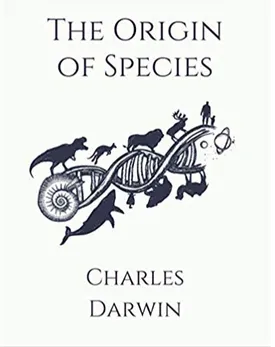Charles Darwin
Charles Darwin is an iconic figure of the 19th century, one of the most illustrious naturalists in history, and an author whose iconic works have left an indelible mark on the sciences of evolutionary biology and ecology. Born on 12th February 1809, in Shrewsbury, England, Darwin taught himself to become an amateur naturalist and his numerous expeditions and studies of a variety of species of animals and plants, particularly the finches of the Galapagos Islands, fundamentally changed the way we look at the natural world.
His motivation was to explain the diversity of the natural world and in 1859, Darwin published "On the Origin of Species by Means of Natural Selection or The Preservation of Favoured Races in the Struggle for Life". This is the great book Darwin is most famed for and it has had a profound influence on our world view. In it, he argued that through the process of natural selection, new species evolve from earlier forms. This was an immensely controversial idea at the time, as it contradicted the beliefs of traditional religion, which held that species were fixed and created by a divine being. Through the book and the findings of his research, he suggested that the earth is much older than previously thought and the universe is more complex than what was commonly accepted.
Another major work of Darwin's is "The Descent of Man, and Selection in Relation to Sex". This book was published in 1871 and built on the ground laid by "The Origin of Species", where he suggested that not only did animals and plants change and evolve, but humans too. This book, unusually for the time period, made arguments for the equality of sexes and races and laid the groundwork for the modern discussion on social issues.
The works of Darwin, although influential in their own time and still revered by scientists, are still subject to controversy. His views on the social implications of his theories are regularly questioned and even today, with the further advances made in evolutionary biology and ecology, there are still debates over the accuracy of assumptions Darwin made in his work.
The legacy of Charles Darwin is one of immense importance. His works and writings provided a foundation on which later scientists have built upon and his passion for scientific pursuit and exploration has inspired countless individuals to pursue research in the natural sciences. His approaches to scientific inquiry have been a driving force for future generations and he remains one of the most beloved and important authors in the annals of science.

